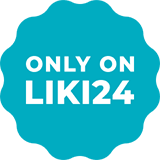

Description
ACTION AND MECHANISM
- Cerebral vasodilator. The mechanism by which ginkgo leaves appear to improve cerebral blood flow and the active ingredients responsible are unknown, although it is postulated that they could be flavonoids, such as quercetin, and terpenoids such as ginkgolides and bilobalides. In vitro and animal studies have shown that ginkgo flavonoids have an antispasmodic effect similar to papaverine, both at the peripheral level and within the cerebral vascular bed. Furthermore, both flavonoids and ginkgolides appear to be antioxidant and membrane-stabilizing agents, which could prevent lipid peroxidation, preventing the accumulation of atherosclerotic plaques in cerebral vessels. All of these factors could improve blood flow and microcirculation. Administration of certain ginkgo extracts to humans has resulted in increased tolerance to hypoxia, especially in cerebral hypoxia, and improved blood microcirculation and blood rheological properties.
SPECIAL WARNINGS
- Limit treatment for vertigo to a maximum of 8 weeks. - If tinnitus does not improve after 6-8 weeks of treatment, continued treatment is unlikely to be effective.
SENIORS
No specific problems have been described in the elderly.
PATIENT ADVICE
- If symptoms persist or worsen during treatment, consult your doctor and/or pharmacist.
CONTRAINDICATIONS
- Hypersensitivity to ginkgo or any other component of the medication.
PREGNANCY
FDA Category C. Administration of ginkgo extracts to animals did not result in teratogenic effects, nor did it alter fetal development or cause perinatal mortality. Adequate and well-controlled human studies are lacking. Due to the risk of bleeding due to its potential antiplatelet effects, it is recommended to avoid use during pregnancy.
INDICATIONS
- Symptomatic treatment of cerebral microcirculation disorders, such as [VERTIGO] or [TINNITUS]. - [VENOUS INSUFFICIENCY]. Treatment of the symptoms of venous insufficiency in the extremities, such as cramps or a feeling of coldness in the legs.
INTERACTIONS
- Oral anticoagulants. Ginkgo administration may increase bleeding. Use with caution, monitoring the patient's INR. It is unknown whether ginkgo might affect antiplatelet drugs such as clopidogrel, so it should also be used with caution in these patients.
Efavirenz: possible reduction in efavirenz plasma concentrations.
LACTATION
It is unknown whether it is excreted in milk, nor what consequences it could have for the infant. It is recommended to discontinue breastfeeding or avoid its administration.
CHILDREN
Safety and efficacy have not been evaluated in children and adolescents under 18 years of age, so it is recommended to avoid its use.
RULES FOR CORRECT ADMINISTRATION
* Tablets: should be swallowed whole with a glass of water, without food. Do not take the tablets while lying down.
POSOLOGY
DOSAGE:- Adults, oral:* Ginkokán, Ginkgold: 1 tablet/8 h, for 6-8 weeks. Maximum dose 4 tablets/24 h. Treatment of vertigo for periods longer than 8 weeks does not provide any therapeutic benefit. If after 6-8 weeks of treatment the tinnitus does not improve, consider other alternative treatments. If symptoms continue or worsen during treatment, consult your doctor and/or pharmacist.- Children and adolescents under 18 years, oral: Safety and efficacy have not been evaluated.
PRECAUTIONS
- [HEMORRHAGIC DIATHESIS]. Ginkgo may promote bleeding in patients with coagulation disorders or those treated with oral anticoagulants. Patient monitoring is recommended. Discontinue use of ginkgo before surgery. - [EPILEPSY]. The possibility of ginkgo causing seizures cannot be ruled out; therefore, caution is recommended.
PRECAUTIONS RELATED TO EXCIPIENTS
- This medicine contains lactose. Patients with hereditary [LACTOSE INTOLERANCE] or galactose intolerance, the Lapp lactase deficiency, or glucose-galactose malabsorption should not take this medicine.
ADVERSE REACTIONS
- Digestive: Mild gastrointestinal symptoms.- Neurological/psychological: [HEADACHE], [VERTIGO].- Allergic: [HYPERSENSITIVITY REACTIONS], with [PRURITUS], [EDEMA], [FLUSHING] and even [ANAPHYLAXIS].- Hematological: [HEMORRHAGY], especially in patients treated simultaneously with oral anticoagulants.
OVERDOSE
Symptoms: There is no clinical experience with ginkgo overdose. Treatment: Symptomatic treatment should be initiated.
COMPOSITION
GINKGO: 40 MILLIGRAMS - EXTRACT
LACTOSE (EXCIPIENT): 0
CORN STARCH (EXCIPIENT): 0
Features
| Product code | 504096 |
| Category | Allergies |
| Delivery from | Spain |
Reviews
All reviews

There are no reviews for this product.




























































 Description
Description 



